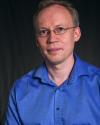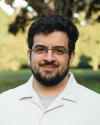
Quantum information science involves the exploration and exploitation of physical ideas and phenomena which rely on the quantum mechanical nature of reality. This involves, in particular, the control, manipulation and measurement of quantum entanglement and quantum dynamics, and the exploration of connections between quantum entanglement and phenomena such as thermalization and equilibration as well as quantum gravity and black hole physics. The realization of a large quantum information processor could enable quantum simulation of complex physical systems, and current work includes the development and testing of algorithms which may be used on future quantum computers to study otherwise intractable problems in fundamental physics.
The UW Physics Department hosts the InQubator for Quantum Simulation (IQuS), a quantum information and computing research effort funded by the US Department of Energy and the University of Washington. In collaboration with the Institute for Nuclear theory (INT), IQuS provides community-driven workshops which aim to create and disseminate new ideas in quantum information science.
Research Strengths
- Entanglement and quantum dynamics (Barnard, Beane, Marcus, Rudner, Spivak)
- Quantum simulation (Gupta, Savage)
- Qubit realizations (Blinov, Fu)
- Quantum photonics (Li, Majumdar)
- Black hole quantum information (Turiaci)
- Topological phases of matter (Fidkowski, Marcus)
Highlighted Resources
- Graduate Certificate in Quantum Information Science and Engineering
- Quantum Technologies Training and Testbed Lab (QT3)
- InQubator for Quantum Simulation (IQuS)
- Thouless Institute for Quantum Matter (TIQM)
- Accelerating Quantum-Enabled Technologies (AQET) - NSF Research Traineeship program
- Integration of Modern Optoelectronic Materials on Demand (IMOD) - NSF Science & Technology Center
- QuantumX
See also: Atomic Physics, Condensed Matter











